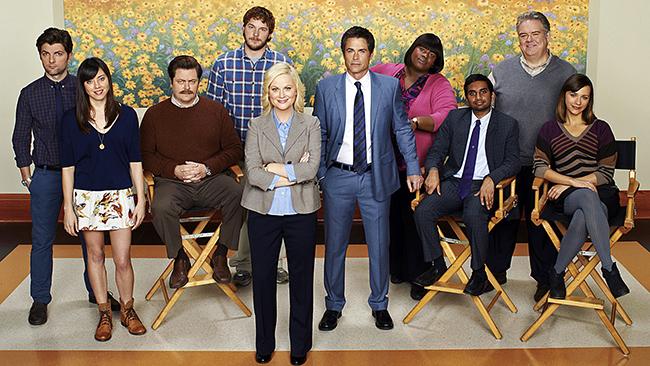What I learned from an NBC sitcom
The elephant in the room
November 21, 2014
Like, seemingly most college students, I own a subscription to Netflix. The other night, utilizing my $8 privileges as much as possible, I found myself watching a recent episode of “Parks and Recreation.” In this episode, Leslie Knope (Amy Poehler) and the arch-libertarian Ron Swanson (Nick Offerman), fight over whether government work is indeed “good work,” a common sub-theme in the show. Specifically in this episode, the debate centered on whether a high school girl should take an unpaid government internship or work for pay at a local sawmill. While a strange and implausible scenario, the episode did bring up valid points about the role of working in society and what, indeed, constituted worthwhile labor.

The argument centers around a central question: is government work, independent of its pay, worth it? If the question was that simple, though, there wouldn’t need to be any further discussion. Instead the themes brought up here illustrate some of the basic principles about work that most of society gets wrong. This could not be truer at our own institution.
Later in the episode, Swanson and Knope clash over whether the impetus behind work is the pay one earns for it, or the impact good work has on other people. Confronted with this conflict, the high school student runs away. I cannot say those of us in college are any different.
To quite a few people on this campus, college is the mechanism by which we get the job we have always wanted—writing, building, planning, treating, or performing. To others, the end job does not matter. It’s only the cash. The quality, purpose, or actual responsibilities take a back seat.
There is merit to both arguments. However at the same time, the reaction to “what are you doing after graduation?” should not be limited to “I’m working for XYZ corporation and getting paid $Q.” Nor should it, however, be the case that the response should not, or cannot, include that information. A response to the dreaded post-graduation question should be a life choice. What, how, why are you taking that path? Without answers to those questions, you sell yourself short.
However, this is not the fault of any individuals. Society has pushed these conceptions onto students. Consider this. Just this week, the Washington Post, via the Wonkblog, posted data about “Where to go to college if you want the highest starting salary.” In these short “rankings,” the top five schools in the country were the US Naval Academy, Harvey Mudd, West Point, Caltech, and MIT. On the other hand, Washington Monthly published college rankings earlier this year that emphasize service and civic engagement. The top five there look very different: University of California (UC)-San Diego, UC-Riverside, UC-Berkeley, Texas A&M, and UCLA. By comparison to both, the lauded US News and World Report rankings propose Princeton, Harvard, Yale, Columbia, Stanford, and Chicago as their top five. (Columbia, Stanford, and Chicago are tied for fourth place.)
It would be possible to list numerous others. Each new ranking of colleges (or law schools, medical schools, graduate schools, etc.) posits its own top five and normally its own, “superior,” methodology. However, to students, especially naïve high school juniors and seniors, these lists complicate the issue. Which list you encounter first will shade your impression of the college experience and the educational process. The system, it seems, is not doing us any favors in a quest to prevent the production of more partisanly-opposed Knopes and Swansons.
Instead, it has become the job of universities to educate their students about the different kinds of opportunities graduates have. The job has fallen onto employees in the Career Centers to break through preconceived notions about life and explain that there’s more than money involved in a decision. They have to prove that students should neither martyr themselves nor focus solely on the bottom line. Unfortunately when those charged with the task cannot fix it, we are all left to suffer.
According the CWRU Career Center website, the center’s mission is “[to offer] individualized assistance and technologically advanced resources to enable students and alumni to develop lifelong career management skills, to obtain work experience and to integrate academic and career plans.” From the onset, it appears that they shirk their duties. They assume that students arrive having “academic and career plans” when in reality most students, even those who come in planning about the future, will change their minds, gather new interests, and do something entirely different. Perhaps we should start to think about the ways a place like the Career Center could be less a matchmaking service and more of a guide, another teacher, which would aid in the post-graduation search process.
“Whatever you’ll do you’ll be great at it,” was Ron Swanson’s advice to a confused high school student. There is, however, a step before this: considering the “what” itself.


